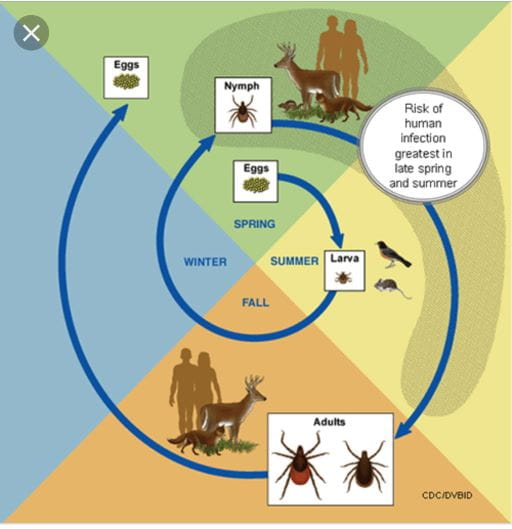Released on May 17, 2019
We might be glad to put a long and cold winter behind us, but the Ministry of Health is reminding Saskatchewan people that warmer weather brings an increased risk of tick bites for those who spend time outdoors.Ticks are out from early spring until October, particularly in tall grass, brush or wooded areas.
“We want people to enjoy the summer weather, but it’s important to take precautions against ticks,” Deputy Chief Medical Health Officer Dr. Denise Werker said. “It’s also important that after spending time outside to check yourself and your children and pets for ticks, and if you find a tick, remove it carefully and promptly.”
Precautionary measures include:
- Wear pants, long-sleeved shirts and shoes that don’t show your feet.
- Pull socks over your pant legs to prevent ticks from crawling up your legs.
- Wear light-coloured clothes so ticks can be seen easily.
- Use insect repellents that contain DEET or Icaridin. Apply repellent to clothes as well as your skin. Always read and follow the directions.
- Shower or bathe as soon as possible after being outside to wash off loose ticks.
- Do “full body” tick checks after being outside on yourself, your children and your pets.

If you find a tick attached to your skin:
- Carefully remove it with fine-tipped tweezers and grasp the mouth of the tick as close to the skin as possible.
- Pull slowly upward and out with a firm steady pressure.
- Be careful not to squeeze, crush or puncture the body after removal as this may also contain infectious fluids.
Most ticks found in Saskatchewan are the American dog tick. This species is not capable of transmitting Lyme disease to people. Rocky Mountain wood ticks and the winter tick (or moose tick) are also found in Saskatchewan.
As of December 31, 2018, 28,899 ticks have been collected and identified in Saskatchewan and only 71 were black-legged ticks. Among these 71, only 10 black-legged ticks tested positive for the bacterium that causes Lyme disease.
For more information on ticks and Lyme disease, including how to submit a tick for Lyme disease testing, visit http://www.saskatchewan.ca/lyme.
-30-
For more information, contact:
Colleen Ann Book
Health
Regina
Phone: 306-787-4083
Email: colleen.book@health.gov.sk.ca
